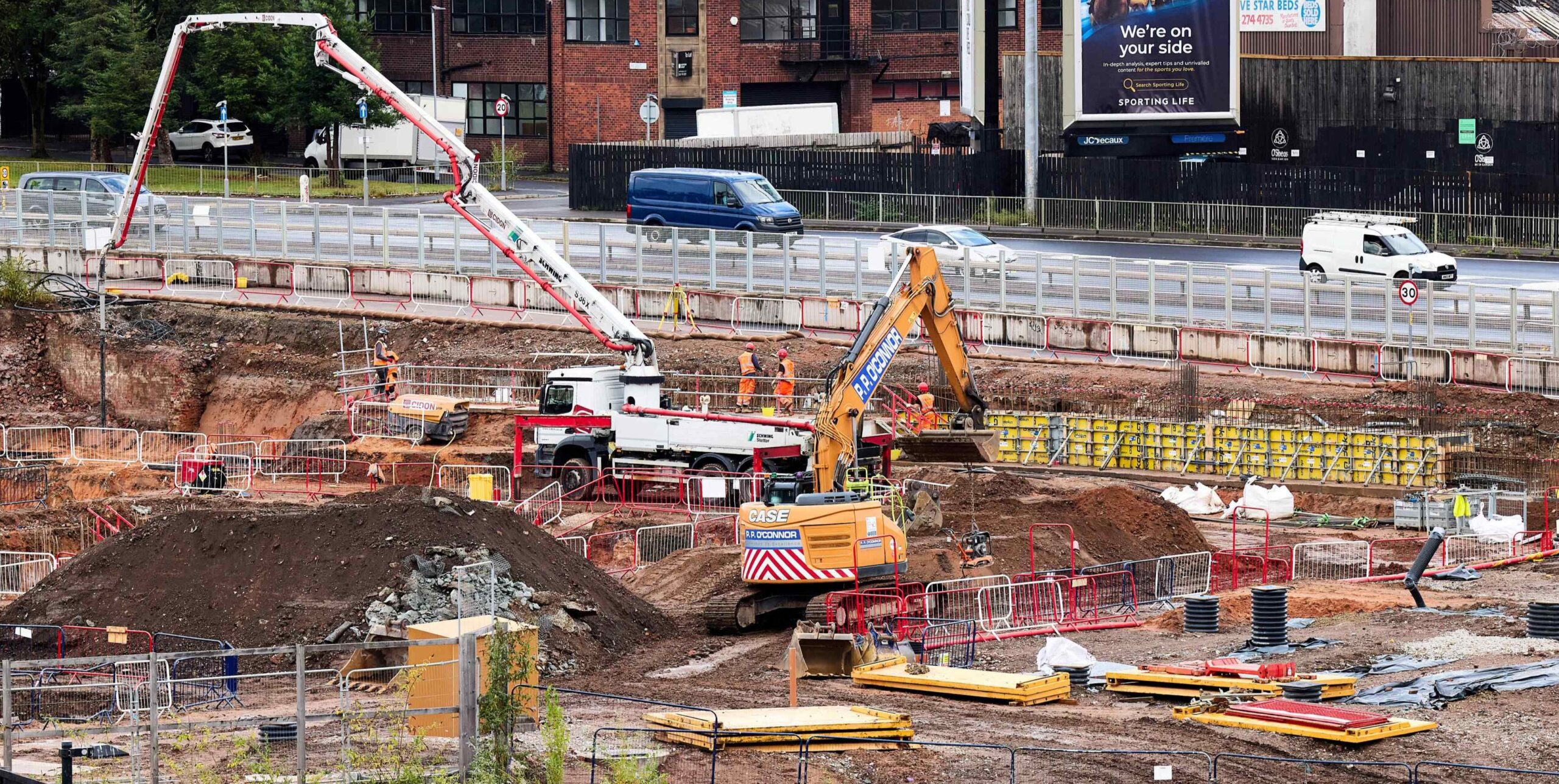Half of all homes with planning permission are never built – industry leaders say it’s time for data, trust, and delivery to lead the way.
A new development ‘playbook’ is emerging across the UK as the industry faces a stark truth: too many permissions, too little delivery. With £12bn worth of regeneration schemes stuck in limbo and 50% of consented residential projects never built, leading developers and advisors are calling for a bold reset of how Britain plans and builds.

At a recent roundtable hosted by fast-growing technology company Impact Data Metrics, six senior voices from across real estate, planning, and infrastructure said the old rules no longer work – and that change is already underway.
From assumptions to analytics
‘Ambition is great, but we need evidence first,’ Geoff Wainwright, CEO of Impact Data Metrics, said. He pointed to projects like Thames Enterprise Park, where detailed economic data transformed a stalled logistics scheme into a thriving vision for port-related industry linked to the Estuary economy.
This kind of granular intelligence is increasingly essential, CBRE’s Iain Jenkinson, added. ‘Generic market reports aren’t cutting it anymore when you’re deploying hundreds of millions. Investors need certainty.’
Partnerships, not transactions
Muse’s Elizabeth Oliveira showcased the developer’s Manor Road Quarter in Canning Town – 804 homes, half of them affordable, plus a major park and local amenities. The difference? A long-term public-private partnership (Muse, Homes England and L&G), and a revenue-sharing deal with Newham Council that replaced upfront land receipts with future value.
‘Newham took a risk on a partner with staying power,’ she said. ‘And it’s paying off.’
Infrastructure remains the bottleneck
Rupert Wood, leading strategy at ALMCOR, remarked: ‘The UK’s core infrastructure has been neglected for 30-40 years.’
With planning for major schemes like the Lower Thames Crossing costing over £1.2 billion before a shovel hits the ground, developers warned that underinvestment continues to strangle growth.
There’s hope that new legislation – including devolution and infrastructure planning bills – could give metro mayors real long-term powers. But panellists warned that without political courage, short-term cycles will keep holding back long-term decisions.
Planning isn’t the problem — delivery is
Despite headlines about red tape, the panel agreed the biggest hurdle isn’t planning – it’s what comes after.
‘Fifty percent of permissions aren’t built. That’s not a planning problem — it’s a commercial one,’ Jenkinson argued. Viability, infrastructure, and rigid masterplans often sink projects before they get going.
Katie Wray from Deloitte added: ‘We need flexibility from day one. Locking in a 20-year vision without room to adapt is a recipe for failure.’
Rebuilding trust with communities
Perhaps the biggest change required is cultural. The industry, the panel agreed, has failed to tell a compelling story about what regeneration actually delivers.
‘We talk in jargon. The public hears ‘mixed use’ and ‘affordable units’, not jobs, parks, schools or shorter commutes,’ said Oliveira.
Katie Wray summed it up: ‘People need to look at a plan and say, ‘I can see myself walking down that street’.’
The new rules
A new development model is forming around five fundamentals:
1. Start with Data – don’t assume; analyse.
2. Build Real Partnerships – share risk and long-term value.
3. Face Infrastructure Head-On – design with it, not around it.
4. Deliver, Don’t Just Plan – viability and phasing matter more than permissions.
5. Tell Better Stories – use plain language, start early, and earn trust.
The coming year will show whether the industry is ready to embrace this shift. As Wainwright warned: ‘You can’t hide from the truth.’
Image: Impact Data Metrics
In related news:

















Leave a Reply